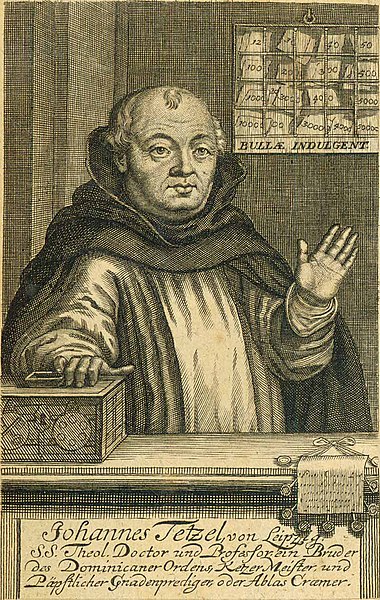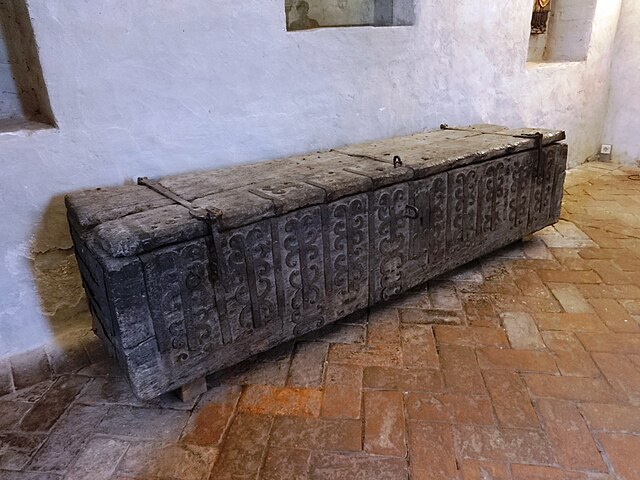Johann Tetzel was a German Dominican friar and preacher. He was appointed Inquisitor for Poland and Saxony, later becoming the Grand Commissioner for indulgences in Germany. Tetzel was known for granting indulgences on behalf of the Catholic Church in exchange for money. Indulgences grant a remission of temporal punishment due to sin, the guilt of which has been forgiven. This largely contributed to Martin Luther writing his Ninety-five Theses. The main usage of the indulgences sold by Tetzel was to help fund and build the new St. Peter's Basilica in Rome.
Johann Tetzel
Tetzel's coffer, on display at the St. Nikolai church in Jüterbog
Johann Tetzel Taking an Oath (1717)
In the teaching of the Catholic Church, an indulgence is "a way to reduce the amount of punishment one has to undergo for (forgiven) sins". The Catechism of the Catholic Church describes an indulgence as "a remission before God of the temporal punishment due to sins whose guilt has already been forgiven, which the faithful Christian who is duly disposed gains under certain prescribed conditions…"
Inscription on the Archbasilica of St. John Lateran in Rome: Indulgentia plenaria perpetua quotidiana toties quoties pro vivis et defunctis (English: "Perpetual everyday plenary indulgence on every occasion for the living and the dead")
Apostolic Benediction and Plenary Indulgence Parchment
Archbishop Socrates B. Villegas bestows the Easter Mass Plenary Indulgence in 2012 (St. John the Evangelist Metropolitan Cathedral, Dagupan, Philippines).
A 1948 reproduction of the Stradanus engraving, a 17th-century certificate for indulgences, in return for cash contributions to build a shrine







